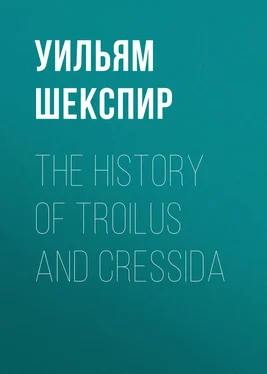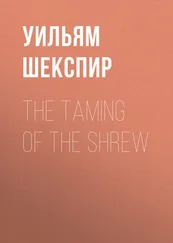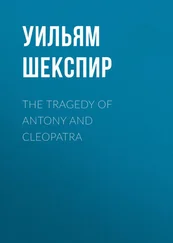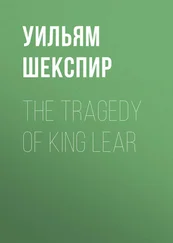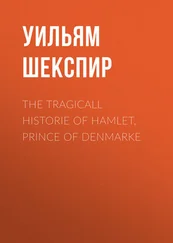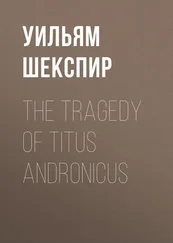Уильям Шекспир - The History of Troilus and Cressida
Здесь есть возможность читать онлайн «Уильям Шекспир - The History of Troilus and Cressida» — ознакомительный отрывок электронной книги совершенно бесплатно, а после прочтения отрывка купить полную версию. В некоторых случаях можно слушать аудио, скачать через торрент в формате fb2 и присутствует краткое содержание. Жанр: Европейская старинная литература, Драматургия, foreign_dramaturgy, на английском языке. Описание произведения, (предисловие) а так же отзывы посетителей доступны на портале библиотеки ЛибКат.
- Название:The History of Troilus and Cressida
- Автор:
- Жанр:
- Год:неизвестен
- ISBN:нет данных
- Рейтинг книги:5 / 5. Голосов: 1
-
Избранное:Добавить в избранное
- Отзывы:
-
Ваша оценка:
- 100
- 1
- 2
- 3
- 4
- 5
The History of Troilus and Cressida: краткое содержание, описание и аннотация
Предлагаем к чтению аннотацию, описание, краткое содержание или предисловие (зависит от того, что написал сам автор книги «The History of Troilus and Cressida»). Если вы не нашли необходимую информацию о книге — напишите в комментариях, мы постараемся отыскать её.
The History of Troilus and Cressida — читать онлайн ознакомительный отрывок
Ниже представлен текст книги, разбитый по страницам. Система сохранения места последней прочитанной страницы, позволяет с удобством читать онлайн бесплатно книгу «The History of Troilus and Cressida», без необходимости каждый раз заново искать на чём Вы остановились. Поставьте закладку, и сможете в любой момент перейти на страницу, на которой закончили чтение.
Интервал:
Закладка:
Enter AENEAS
AGAMEMNON. What would you fore our tent?
AENEAS. Is this great Agamemnon's tent, I pray you?
AGAMEMNON. Even this.
AENEAS. May one that is a herald and a prince
Do a fair message to his kingly eyes?
AGAMEMNON. With surety stronger than Achilles' an
Fore all the Greekish heads, which with one voice
Call Agamemnon head and general.
AENEAS. Fair leave and large security. How may
A stranger to those most imperial looks
Know them from eyes of other mortals?
AGAMEMNON. How?
AENEAS. Ay;
I ask, that I might waken reverence,
And bid the cheek be ready with a blush
Modest as Morning when she coldly eyes
The youthful Phoebus.
Which is that god in office, guiding men?
Which is the high and mighty Agamemnon?
AGAMEMNON. This Troyan scorns us, or the men of Troy
Are ceremonious courtiers.
AENEAS. Courtiers as free, as debonair, unarm'd,
As bending angels; that's their fame in peace.
But when they would seem soldiers, they have galls,
Good arms, strong joints, true swords; and, Jove's accord,
Nothing so full of heart. But peace, Aeneas,
Peace, Troyan; lay thy finger on thy lips.
The worthiness of praise distains his worth,
If that the prais'd himself bring the praise forth;
But what the repining enemy commends,
That breath fame blows; that praise, sole pure, transcends.
AGAMEMNON. Sir, you of Troy, call you yourself Aeneas?
AENEAS. Ay, Greek, that is my name.
AGAMEMNON. What's your affair, I pray you?
AENEAS. Sir, pardon; 'tis for Agamemnon's ears.
AGAMEMNON. He hears nought privately that comes from Troy.
AENEAS. Nor I from Troy come not to whisper with him;
I bring a trumpet to awake his ear,
To set his sense on the attentive bent,
And then to speak.
AGAMEMNON. Speak frankly as the wind;
It is not Agamemnon's sleeping hour.
That thou shalt know, Troyan, he is awake,
He tells thee so himself.
AENEAS. Trumpet, blow loud,
Send thy brass voice through all these lazy tents;
And every Greek of mettle, let him know
What Troy means fairly shall be spoke aloud.
[Sound
trumpet]
We have, great Agamemnon, here in Troy
A prince called Hector-Priam is his father-
Who in this dull and long-continued truce
Is resty grown; he bade me take a trumpet
And to this purpose speak: Kings, princes, lords!
If there be one among the fair'st of Greece
That holds his honour higher than his ease,
That seeks his praise more than he fears his peril,
That knows his valour and knows not his fear,
That loves his mistress more than in confession
With truant vows to her own lips he loves,
And dare avow her beauty and her worth
In other arms than hers-to him this challenge.
Hector, in view of Troyans and of Greeks,
Shall make it good or do his best to do it:
He hath a lady wiser, fairer, truer,
Than ever Greek did couple in his arms;
And will to-morrow with his trumpet call
Mid-way between your tents and walls of Troy
To rouse a Grecian that is true in love.
If any come, Hector shall honour him;
If none, he'll say in Troy, when he retires,
The Grecian dames are sunburnt and not worth
The splinter of a lance. Even so much.
AGAMEMNON. This shall be told our lovers, Lord Aeneas.
If none of them have soul in such a kind,
We left them all at home. But we are soldiers;
And may that soldier a mere recreant prove
That means not, hath not, or is not in love.
If then one is, or hath, or means to be,
That one meets Hector; if none else, I am he.
NESTOR. Tell him of Nestor, one that was a man
When Hector's grandsire suck'd. He is old now;
But if there be not in our Grecian mould
One noble man that hath one spark of fire
To answer for his love, tell him from me
I'll hide my silver beard in a gold beaver,
And in my vantbrace put this wither'd brawn,
And, meeting him, will tell him that my lady
Was fairer than his grandame, and as chaste
As may be in the world. His youth in flood,
I'll prove this truth with my three drops of blood.
AENEAS. Now heavens forfend such scarcity of youth!
ULYSSES. Amen.
AGAMEMNON. Fair Lord Aeneas, let me touch your hand;
To our pavilion shall I lead you, first.
Achilles shall have word of this intent;
So shall each lord of Greece, from tent to tent.
Yourself shall feast with us before you go,
And find the welcome of a noble foe.
ULYSSES. Nestor!
NESTOR. What says Ulysses?
ULYSSES. I have a young conception in my brain;
Be you my time to bring it to some shape.
NESTOR. What is't?
ULYSSES. This 'tis:
Blunt wedges rive hard knots. The seeded pride
That hath to this maturity blown up
In rank Achilles must or now be cropp'd
Or, shedding, breed a nursery of like evil
To overbulk us all.
NESTOR. Well, and how?
ULYSSES. This challenge that the gallant Hector sends,
However it is spread in general name,
Relates in purpose only to Achilles.
NESTOR. True. The purpose is perspicuous even as substance
Whose grossness little characters sum up;
And, in the publication, make no strain
But that Achilles, were his brain as barren
As banks of Libya-though, Apollo knows,
'Tis dry enough-will with great speed of judgment,
Ay, with celerity, find Hector's purpose
Pointing on him.
ULYSSES. And wake him to the answer, think you?
NESTOR. Why, 'tis most meet. Who may you else oppose
That can from Hector bring those honours off,
If not Achilles? Though 't be a sportful combat,
Yet in this trial much opinion dwells;
For here the Troyans taste our dear'st repute
With their fin'st palate; and trust to me, Ulysses,
Our imputation shall be oddly pois'd
In this vile action; for the success,
Although particular, shall give a scantling
Of good or bad unto the general;
And in such indexes, although small pricks
To their subsequent volumes, there is seen
The baby figure of the giant mas
Of things to come at large. It is suppos'd
He that meets Hector issues from our choice;
And choice, being mutual act of all our souls,
Makes merit her election, and doth boil,
As 'twere from forth us all, a man distill'd
Out of our virtues; who miscarrying,
What heart receives from hence a conquering part,
To steel a strong opinion to themselves?
Which entertain'd, limbs are his instruments,
In no less working than are swords and bows
Directive by the limbs.
ULYSSES. Give pardon to my speech.
Therefore 'tis meet Achilles meet not Hector.
Let us, like merchants, show our foulest wares
And think perchance they'll sell; if not, the lustre
Of the better yet to show shall show the better,
By showing the worst first. Do not consent
That ever Hector and Achilles meet;
For both our honour and our shame in this
Are dogg'd with two strange followers.
NESTOR. I see them not with my old eyes. What are they?
ULYSSES. What glory our Achilles shares from Hector,
Were he not proud, we all should wear with him;
But he already is too insolent;
And it were better parch in Afric sun
Than in the pride and salt scorn of his eyes,
Should he scape Hector fair. If he were foil'd,
Why, then we do our main opinion crush
In taint of our best man. No, make a lott'ry;
And, by device, let blockish Ajax draw
The sort to fight with Hector. Among ourselves
Give him allowance for the better man;
For that will physic the great Myrmidon,
Who broils in loud applause, and make him fall
His crest, that prouder than blue Iris bends.
If the dull brainless Ajax come safe off,
We'll dress him up in voices; if he fail,
Yet go we under our opinion still
That we have better men. But, hit or miss,
Our project's life this shape of sense assumes-
Ajax employ'd plucks down Achilles' plumes.
NESTOR. Now, Ulysses, I begin to relish thy advice;
And I will give a taste thereof forthwith
To Agamemnon. Go we to him straight.
Two curs shall tame each other: pride alone
Must tarre the mastiffs on, as 'twere their bone.
Интервал:
Закладка:
Похожие книги на «The History of Troilus and Cressida»
Представляем Вашему вниманию похожие книги на «The History of Troilus and Cressida» списком для выбора. Мы отобрали схожую по названию и смыслу литературу в надежде предоставить читателям больше вариантов отыскать новые, интересные, ещё непрочитанные произведения.
Обсуждение, отзывы о книге «The History of Troilus and Cressida» и просто собственные мнения читателей. Оставьте ваши комментарии, напишите, что Вы думаете о произведении, его смысле или главных героях. Укажите что конкретно понравилось, а что нет, и почему Вы так считаете.
